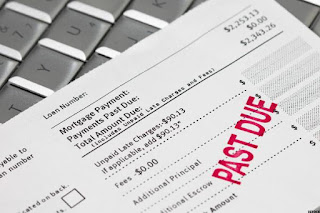Many struggling homeowners and those that owe greater than their homes are worth can be wondering about the outcomes for not paying home loan repayments. Find out here.
When you are looking for making bill payments, sometimes there may be simply not enough money left at the conclusion of the month. Some people might be tempted to quit paying their mortgage, in particular when they are ugly or owe in excess of the home is worth as a result of falling property values or creative financing loans that became problematic. However, generally failing your mortgage can be a bad idea as it might have severe consequences in your credit, could lead to loss of your house and can even produce a lawsuit against you after foreclosure.
Foreclosure is regarded as the obvious consequence of failing your mortgage. However, the foreclosure process is generally fairly slow. First, if your payments are late, the lender will begin to contact that you try to find out why you are failing and to seek to obtain payment. Once you are between thirty to three months late, based on your loan and lender, the financial institution will send that you notice of default. By this time, you will most likely owe considerable penalties and fees in addition for a missed payment(s).
If you cannot pay or speak to the lending company after getting a notice of default, the lender will usually begin foreclosure proceedings. Although the exact rules vary determined by state law, generally this involves the lender posting a notice of foreclosure inside the newspaper, that is public record, and/or going to court to own you evicted in the home to be able to sell your house at foreclosed auction.
When the financial institution formally forecloses, you should legally leave your home. This usually happens about six months from your first missed payment, dependant upon the state regulations and how aggressive your bank proceeded. If you don't leave your own home, a sheriff or some other police official can force that you leave the house.
In some jurisdictions, the financial institution is only able to foreclose which is the end of the usb ports. However, in other jurisdictions, your banker can pursue a deficiency judgment if these are not able to sell the foreclosed home with a high enough price to recoup your finances them as well as the fees they incurred in foreclosing. They can take that you court to obtain this difference, along with the judgment is known as deficiency judgment.
If this happens, you will subsequently be legally forced to make these payments, even after the financial institution has foreclosed on your house. If you fail to make payments, legal court can garnish your wages or seize assets now and again in order to match the judgment against you.
A ruined credit standing is another of the effects of not paying home loan payments. Your FICO score is established in large part by the credit history and payment history. The missed payments make an appearance as a black mark within the payment history facet of your score, worth 35% inside the FICO formula for determining your creditworthiness. Furthermore, foreclosed stays on the credit report for approximately ten years and it has a comparable effect to bankruptcy when it comes to dragging your credit rating down.
If you can not make your home loan repayments, consider alternatives instead of not really making payments. Speak for your lender and pay attention to if they can provide you with loan modification or else work with one to change the regards to your loan. If you have decent credit and/or some equity inside home, consider refinancing so you can result in the payments.
As a last resort before foreclosure, see if your banker will accept a short sale that you sell the house for less than your expenses and they realize that as full satisfaction in the debt. While a shorter sale could hurt your credit, it isn't as detrimental like a foreclosure and the financial institution cannot pursue a deficiency judgment against you if they pay a short sale.
